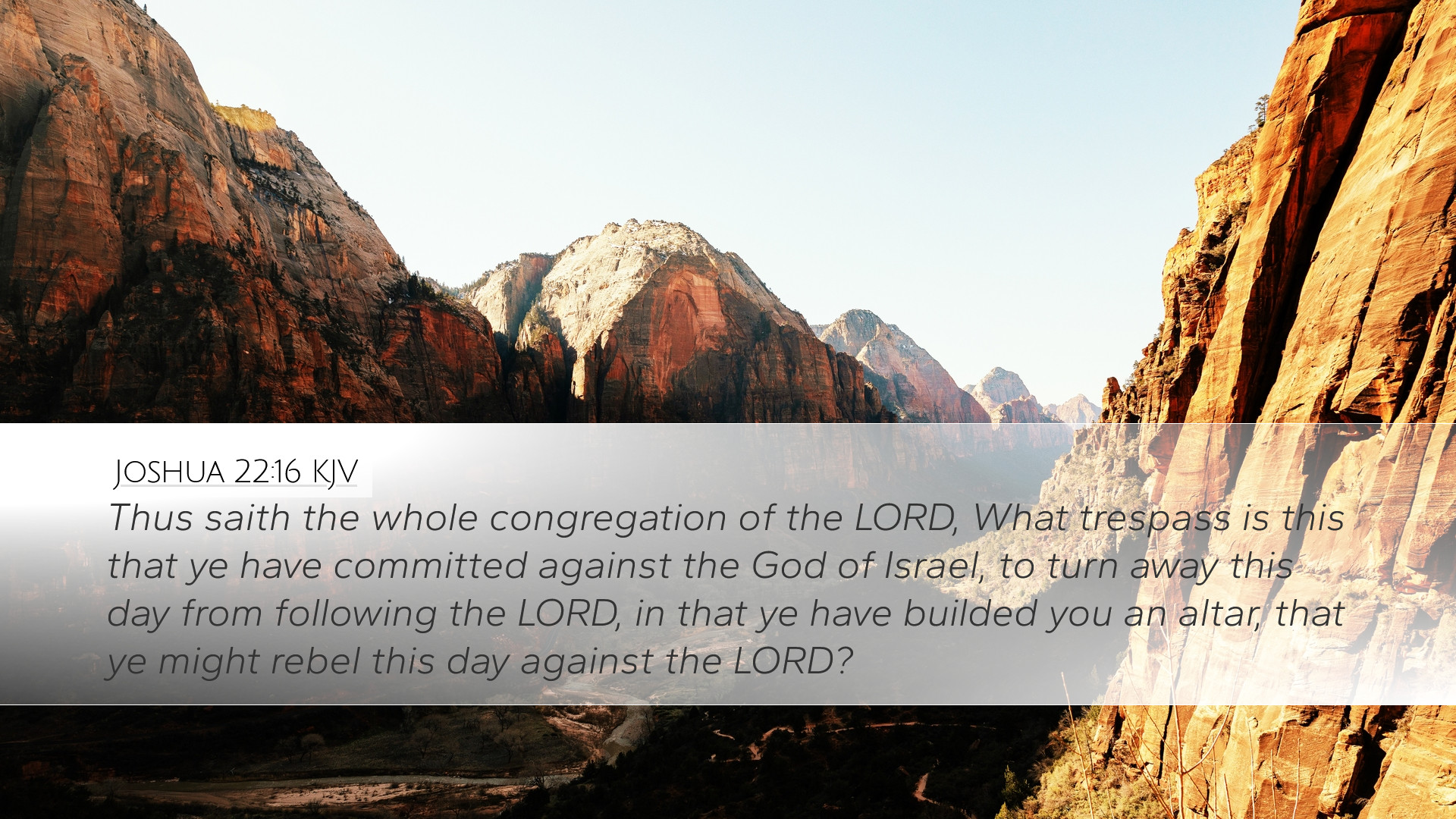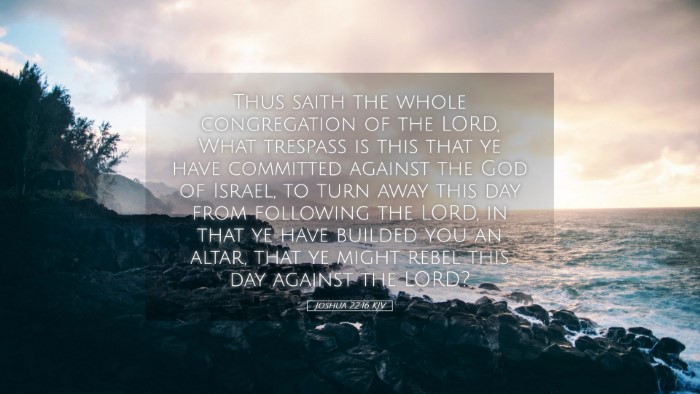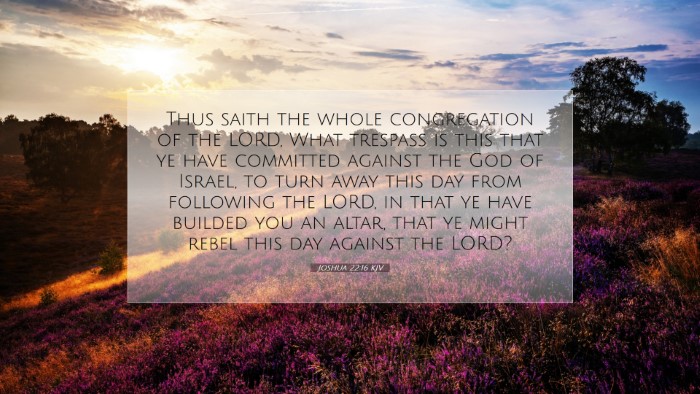Commentary on Joshua 22:16
Verse: Joshua 22:16 - "Thus says the whole congregation of the Lord: 'What treachery is this that you have committed against the God of Israel, to turn away this day from following the Lord, in that you have built for yourselves an altar, that you might rebel this day against the Lord?'"
Overview
This verse captures a significant moment of concern among the Israelites, particularly relating to the actions of the tribes of Reuben, Gad, and the half-tribe of Manasseh. It reflects deep theological implications regarding community, worship, and fidelity to God.
Contextual Background
The events leading to this confrontation stem from the period after the Israelites had settled in the Promised Land. The tribes that settled on the eastern side of the Jordan River built an altar, raising alarm among the western tribes. This verse represents a pivotal point where the other tribes confront their brethren regarding perceived disloyalty to the covenant community.
Exegesis
This passage can be understood through several key themes:
- Allegiance to God: The accusation of treachery highlights a foundational expectation of loyalty among the Israelites toward the Lord. The building of an altar was perceived as an act of rebellion against God.
- Community Responsibility: Each tribe held a responsibility to remain faithful not just as individuals but as a cooperative community, upholding the values of their covenant with God.
- Identity and Worship: The act of building an altar signified potential division in worship, which was central to Israelite identity. The concern over the altar was not over its physical presence but what it represented in terms of diverging worship and allegiance.
Theological Insights
Various commentators provide valuable insights on the theological implications of this verse:
- Matthew Henry: Emphasizes the seriousness of turning away from the Lord as a communal sin that can provoke divine wrath. He notes the importance of preserving unity in worship and adhering strictly to the prescribed methods of offering sacrifices to God.
- Albert Barnes: Highlights the collective nature of Israel’s response to perceived transgressions. He understands the confrontation as a necessary step to safeguard the community from corruption and apostasy, indicating that any move away from the true altar could have disastrous consequences.
- Adam Clarke: Offers a nuanced perspective on the motivations behind the altar. He elucidates that while the intention may have been misunderstood, the resulting actions nonetheless threatened the unity of worship among the tribes.
Practical Applications
This verse not only holds historical significance but also provides several practical lessons for contemporary believers:
- The Importance of Communication: Just as the western tribes sought to clarify grievances directly, modern communities should address misunderstandings proactively and constructively.
- Fostering Unity: Unity is essential in the body of Christ. Actions that might divide or misrepresent faith can have far-reaching implications for the community.
- Accountability within the Body: The call for accountability among believers is crucial. Each member is responsible for maintaining fidelity to God and to one another.
Conclusion
Joshua 22:16 serves as a profound reminder of the responsibilities that come with faith. It challenges believers to reflect on their actions' communal impact and underscores the importance of maintaining a devoted relationship with God that is visible in community worship and life. As contemporary readers, the challenge remains to recognize how our individual actions resonate within the faith community and affect our corporate journey in following the Lord.


